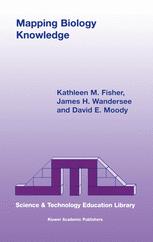

Most ebook files are in PDF format, so you can easily read them using various software such as Foxit Reader or directly on the Google Chrome browser.
Some ebook files are released by publishers in other formats such as .awz, .mobi, .epub, .fb2, etc. You may need to install specific software to read these formats on mobile/PC, such as Calibre.
Please read the tutorial at this link: https://ebookbell.com/faq
We offer FREE conversion to the popular formats you request; however, this may take some time. Therefore, right after payment, please email us, and we will try to provide the service as quickly as possible.
For some exceptional file formats or broken links (if any), please refrain from opening any disputes. Instead, email us first, and we will try to assist within a maximum of 6 hours.
EbookBell Team

4.3
98 reviewsMapping Biology Knowledge addresses two key topics in the context of biology, promoting meaningful learning and knowledge mapping as a strategy for achieving this goal. Meaning-making and meaning-building are examined from multiple perspectives throughout the book. In many biology courses, students become so mired in detail that they fail to grasp the big picture. Various strategies are proposed for helping instructors focus on the big picture, using the `need to know' principle to decide the level of detail students must have in a given situation. The metacognitive tools described here serve as support systems for the mind, creating an arena in which learners can operate on ideas. They include concept maps, cluster maps, webs, semantic networks, and conceptual graphs. These tools, compared and contrasted in this book, are also useful for building and assessing students' content and cognitive skills. The expanding role of computers in mapping biology knowledge is also explored.